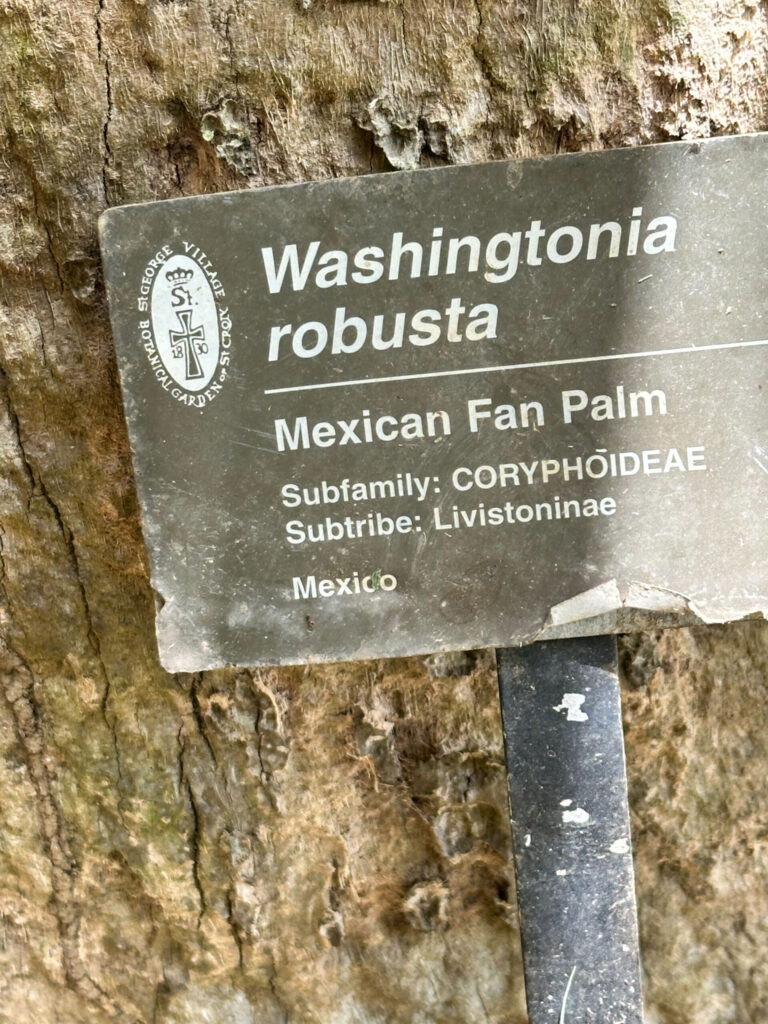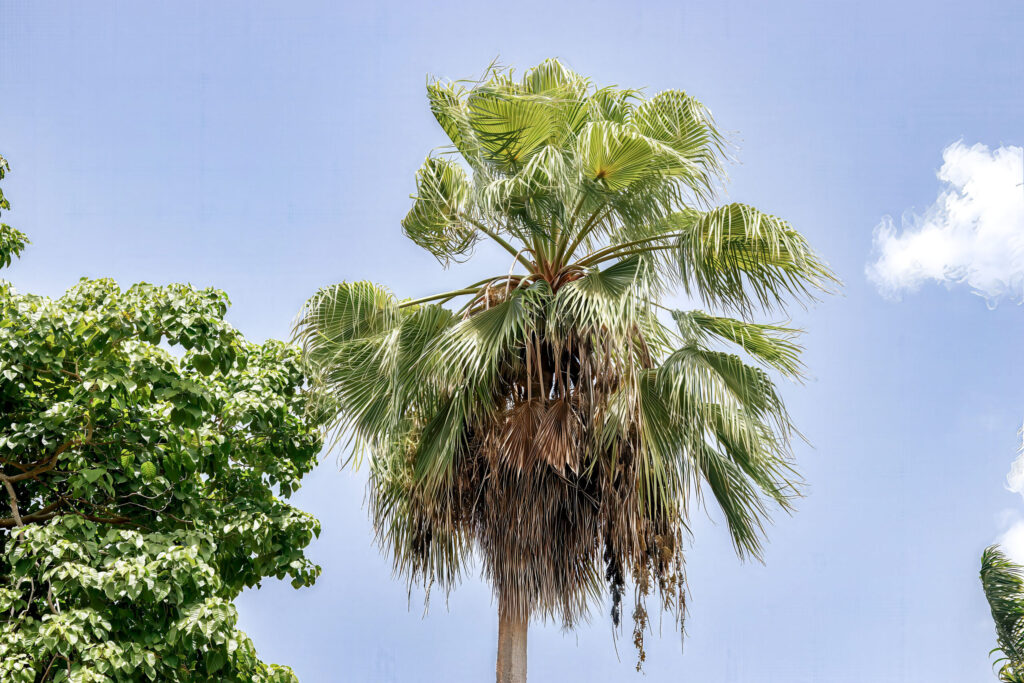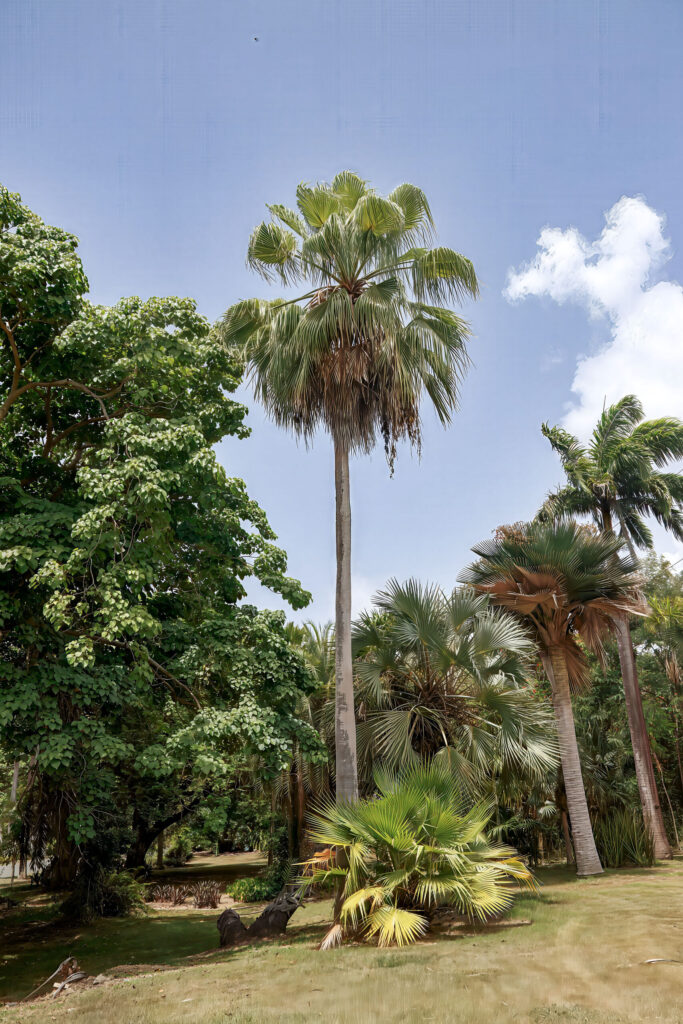Mexican Fan Palm
Scientific name: Washingtonia robusta
POWO Status: Tree
IUCN Red List threat level: Least Concern
GPS Location: 17° 42′ 54.30″ N, 64° 49′ 46.80″ W



Medicinal Uses
While traditional folk medicine uses for Washingtonia robusta are not well documented, modern scientific studies have identified various bioactive compounds in the plant with potential therapeutic applications. Research has focused on its antioxidant, anti-inflammatory, and potential anti-cancer properties, primarily through laboratory and animal studies, not established clinical practices.
Observations:
Phenological Markers – Washingtonia robusta
Common Name: Mexican Fan Palm
Scientific Name: Washingtonia robusta H. Wendl.
Family: Arecaceae
Leaf Phenology
- Leaf Type: Large, fan-shaped (palmate), with spiny petioles; leaf segments droop slightly at the tips
- Evergreen/Semi-deciduous: Evergreen
- Leaf Flush: New leaves emerge year-round in tropical climates, with increased growth in warm, wet seasons
- Leaf Shedding: Older leaves die, turn brown, and form a persistent skirt if not removed
- Leaf Color Changes: Healthy leaves are bright to medium green; aging leaves fade to pale brown before dropping
Flower Phenology
- Flower Type: Small, creamy-white, unisexual flowers produced on long, branched inflorescences that extend well beyond the leaves
- Flowering Season: Late spring to mid-summer (typically May–July in tropical/subtropical regions)
- Flower Duration: Inflorescences can last 4–6 weeks
- Flowering Cues: Triggered by consistently warm temperatures and lengthening days
Fruit Phenology
- Fruit Type: Small, round to ovoid drupes, about 0.5 in (1–1.3 cm) in diameter; thin, fleshy black skin with a single seed
- Fruit Development Period: 5–6 months after flowering
- Fruit Maturity Season: Late autumn to early winter (October–December in many regions)
- Fruit Dispersal: Primarily by birds and small mammals
Bark Phenology
- Bark Texture: Smooth when young; older trunks become ringed with closely spaced leaf scars
- Bark Color: Light gray to brown
- Unique Bark Features: Tall, slender trunk (up to 100 ft / 30 m), tapering slightly at the top; retains a skirt of old leaves unless pruned
